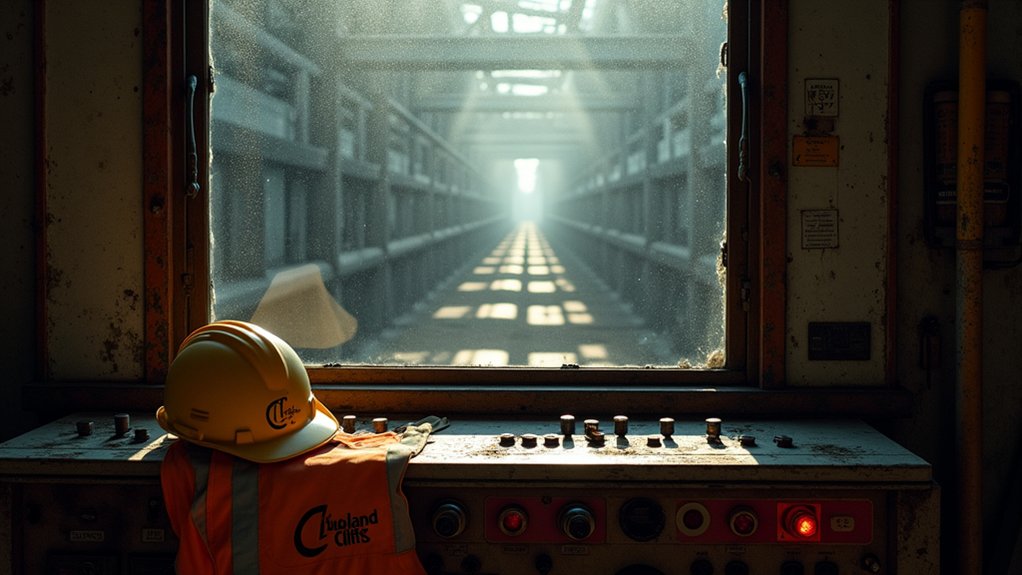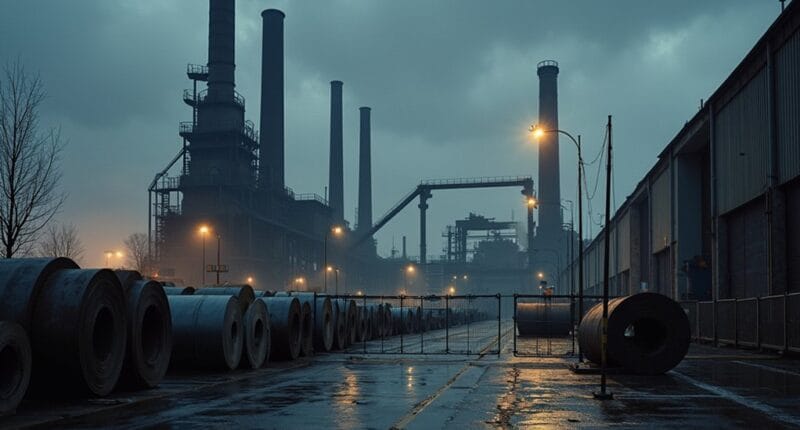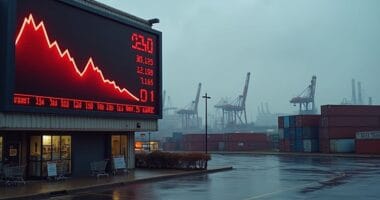Cleveland-Cliffs’ massive layoff of 1,200 workers in Michigan and Minnesota reveals the harsh reality of Trump-era steel tariffs gone wrong. The 25% duties meant to protect American jobs have instead created market chaos. Dearborn Works will slash 600 positions, while Minnesota mines pink-slip 630 workers. Despite company optimism about recovery, analysts aren’t buying it. The stark numbers tell a different story about protective trade policies and their real-world impact.

Steel giant Cleveland-Cliffs is slashing more than 1,200 jobs across its operations in Michigan and Minnesota, raising questions about whether Trump-era steel tariffs meant to protect American workers have backfired.
The numbers are brutal. Six hundred workers at the Dearborn Works plant in Michigan will lose their jobs by July 15, 2025. Another 630 mine workers in Virginia, Minnesota, are getting pink slips. So much for those protective tariffs doing their job.
The culprit? A perfect storm of weak automotive demand and market uncertainty. Those 25% duties on steel imports were supposed to boost domestic production and bring auto manufacturing back home. Instead, they’ve added another layer of complexity to an already messy situation.
Tariffs meant to save American manufacturing jobs have only muddied the waters, making a tough market situation even tougher.
The Dearborn Works plant is taking the biggest hit. Its blast furnace, basic oxygen furnace steel shop, and continuous casting facilities are all going quiet. Environmental groups like Mighty Earth are pushing for Cleveland-Cliffs to invest in clean steel production instead. At least the pickling and galvanizing lines will keep running – small comfort for the 550 workers who get to keep their jobs while watching their colleagues pack up their lockers.
It’s not just an American problem anymore. Canadian steel workers are feeling the pain too, with layoffs spreading across the border like a bad case of industrial flu. Canada Metal Processing Group has announced 140 layoffs in Ontario and Quebec, hitting communities hard. The ripple effects are hitting regional economies that depend on steel and automotive sectors. Talk about unintended consequences.
Cleveland-Cliffs keeps insisting this is all temporary, just a necessary adjustment to market conditions. They’re even planning to restart their Cleveland Works C6 blast furnace in Ohio by mid-July.
But industry analysts aren’t so optimistic, warning that any meaningful recovery could take multiple quarters and significant investment.
The whole mess exposes the complicated relationship between tariff policies and market realities. What looks good on paper doesn’t always work out in the real world.
Meanwhile, more than 1,200 workers are left wondering if protecting American jobs somehow meant losing theirs.





